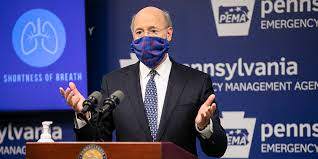By Bonnie Finnerty, Education Director

Vulnerable people, whatever their age, deserve protection.
But even prior to the pandemic, the Wolf Administration failed to protect our elderly by ignoring long-standing concerns in Pennsylvania nursing homes, according to a Spotlight PA expose.
“We are facing an elder care crisis. And we continue to ignore it at our own peril,” acknowledged the state Auditor General, a Democrat himself, in 2019.
And then 2020 brought a novel virus.
The overwhelming majority, almost 70% of COVID-19 deaths in Pennsylvania, have occurred in nursing homes, the fifth highest in the nation for deaths involving long term care residents, according to a July 30 New York Times article.
Could lives have been saved had the Wolf Administration acted upon findings from 2016?
Four years ago, Auditor General Eugene DePasquale reported several problems to the administration including:
-Low minimum staffing requirements, long criticized as “totally unsafe”
-poorly trained nursing home inspectors who were often too “cozy” with facilities
-and a low 2.7 hours of daily care per resident, substandard to the federal recommendation of 4.1 hours of daily care
While these unresolved concerns were highlighted again last year by the auditor general, to this day, the Department of Health has failed to issue the reforms they’ve long promised.
Incredibly, it was into this already stressed system of elder care that the state ordered “stable” COVID-19 hospital patients, putting other residents and the staff themselves at great risk.
And it was in the following month we saw the COVID-19 death toll peak in Pennsylvania, with the highest count at 186 deaths on April 26.
In between, the Secretary of Health, Dr. Rachel Levine, removed the Secretary’s own mother from a long-term care facility.
Initially, an emergency response plan was developed for nursing homes. It was never fully implemented. Rather, a far more limited effort was activated in mid-April, but significant outbreaks had already taken hold.
In addition, the administration waived existing requirements, allowing nursing homes to operate even if they fell below state staffing levels.
At the same time, the safety net of in-person inspections has been suspended, replaced mostly with “virtual inspections.”
Family visits have also been halted, leaving little to no accountability for the facility, no advocacy for the residents, and an isolated population of elderly trapped.
Those in the twilight of their lives, highly dependent on others, certainly deserve better than this. And nursing home staff, dedicated to caring for them, deserve more support.
It’s difficult to understand why the Wolf Administration placed recovering patients into an already strapped system without an adequate plan to protect the parties involved.
It’s difficult to understand why for four years deficiencies were not addressed.
And it’s difficult to understand that while so much time, energy, and resources have been put into stopping the spread of COVID-19 among the general public, comparatively less effort has been spent protecting the elderly population experiencing the highest rates of death.
It seems the Wolf Administration has not just been wearing a mask, but blinders as well.
The lives of the elderly have an inherent value and dignity and the state has a duty to protect them from known harm.
To not do so amounts to passive euthanasia.
